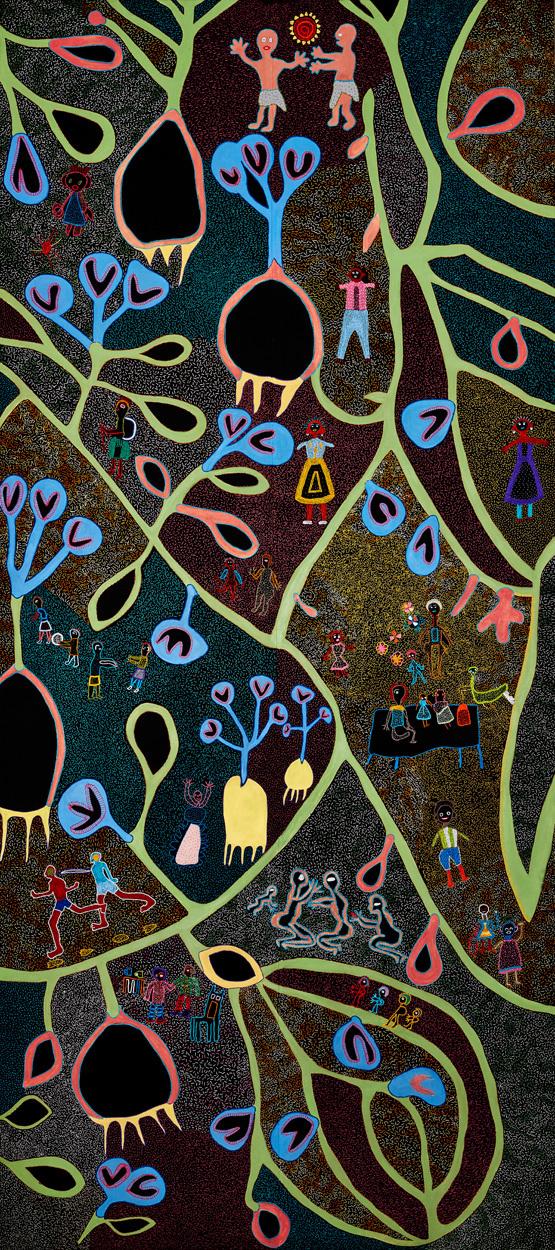
2 minute read
GRADE 10 LEARNER TURNS STYROFOAM POLLUTION INTO GLUE WITH CLEVER IDEA
By: Fahmeeda Zalgaonker
Zariah Parker, a Grade 10 learner at Star College Cape Town, is a budding young scientist with a keen mind for solving practical problems. Her latest research project looks at a solution to Styrofoam pollution, with the clever idea of turning the waste material into glue. We spoke to this young innovator to learn more about her work and achievements.
Advertisement
What was your project all about?
The idea for my project all started last year when my family bought a new fridge that was packaged with lots of Styrofoam. Styrofoam is non-biodegradable, occupies approximately 30% of landfills globally, and there is a lack of recycling options, which creates adverse effects on our environment.
I felt eager to find a solution to this pollution. I was determined to make a positive impact and contribute towards a more sustainable future. I came up with the idea of recycling the material by transforming it into glue through solvent dissolution. I read various books and internet resources to further my knowledge. I successfully tested my theory with acetone, D-limonene and petrol while monitoring properties such as dissolving time, glue quantity, drying time and adhesive strength.
Tell us more about the competitions that you entered.
I participated in the Eskom Expo for Young Scientists through my school and then entered a regional science fair in August 2022, at which I won a gold medal and received an award in the category of “Environmental Science”.

I then partook in the International Science Fair (ISF) in Johannesburg. I won another gold medal, plus the opportunity to attend a science camp sponsored by the Technology Innovation Agency (TIA).
Most recently, I had the privilege of representing South Africa along with three other students at the International Science
Technology and Engineering Competition (ISTEC) held in Bali, Indonesia in May 2023, at which I won a silver medal.


What skills and knowledge did you gain from your project?
Engaging in tons of research and experiments led me to participate in science competitions, which improved my critical thinking, teamwork and communication skills. It has inspired me to explore new avenues of sustainable research in the future and instilled in me a great sense of wonder and curiosity.
Any future plans for continuing your research?
I am particularly interested in further exploring the potential of D-limonene as a natural solvent for Styrofoam recycling. D-limonene (derived from lemon or orange peels) presents an exciting opportunity to address the issue of Styrofoam pollution and repurpose discarded citrus peels. I aim to develop my own source of this environmentally friendly solvent, which would contribute to sustainable waste reduction.
When did your interest in science all begin?
My love for science and technology all started in primary school, where the combination of engaging lessons, experiments and curiosity really excited me. My teachers were great at transforming complex scientific concepts into simple and enjoyable experiments, leaving me in awe and eager to develop a deeper understanding of the world.
Any memorable experiences that shaped your passion for science?
I often visited the Cape Town Science Centre during school holidays. I was always filled with anticipation for the fascinating and interactive displays on exhibition. It was a place where my imagination soared, and I could discover new things with hands-on experiments, interesting science lessons and meet many budding scientists.
Which aspects of STEM do you find particularly interesting?
Exploring the unknown is one of the most fascinating aspects for me. I find it quite thrilling to uncover new scientific cases and challenge existing theories. The idea of being at the forefront of discovery, pushing the boundaries of what we currently know and solving mysteries of the world fills me with a sense of purpose and excitement!
Any advice for students who are interested in pursuing their own STEM projects?
Embrace your curiosity and never stop asking questions because it is the best way to learn! Get involved with handson experiments, join STEM clubs and participate in fairs to get practical experience and meet like-minded people. Projects are not only about the final outcome - it is about the skills, knowledge and personal growth you gain along the way, so be open to welcoming challenges, celebrate successes and learn from every experience!







